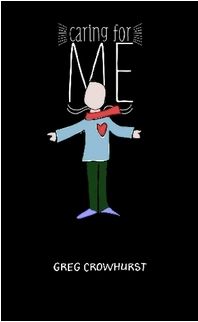Caring for ME
Caring for ME, a pocket book course for carers, is authored by Greg Crowhurst, who wrote it for people who are or will be a carer of someone living with ME.
 | |
| Author | Greg Crowhurst |
|---|---|
| Country | UK |
| Language | English |
| Subject | Health |
| Publisher | Greg Crowhurst |
Publication date | Jul 1, 2018 |
| Media type | |
| Pages | 256 |
| ISBN | 9780244086435 |
Publisher's synopsis[edit | edit source]
If you have the privilege to care for someone with ME, then you really do need to be the best carer you possibly can be. You have to develop an extra special level of awareness, one that requires commitment and boldness of heart.
Caring in this situation is highly skilled, challenging, demanding and never necessarily straightforward. It requires self- reflection and understanding to keep growing and to keep going. You cannot afford to be complacent, otherwise you risk becoming part of the problem.
This book is a short course, with reflective questions, punctuated with pictures and information about ME, to enable you to think more deeply about your role, your knowledge, your beliefs and your particular skills as a carer.
Online presence[edit | edit source]
- Stonebird website
- Caring For ME, a Pocket Book Course for Carers

